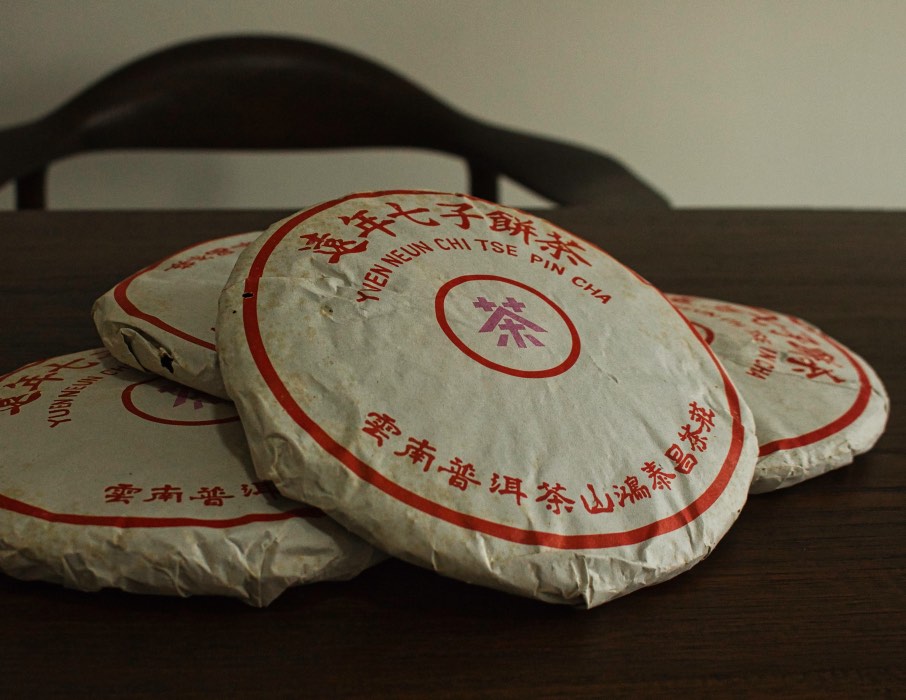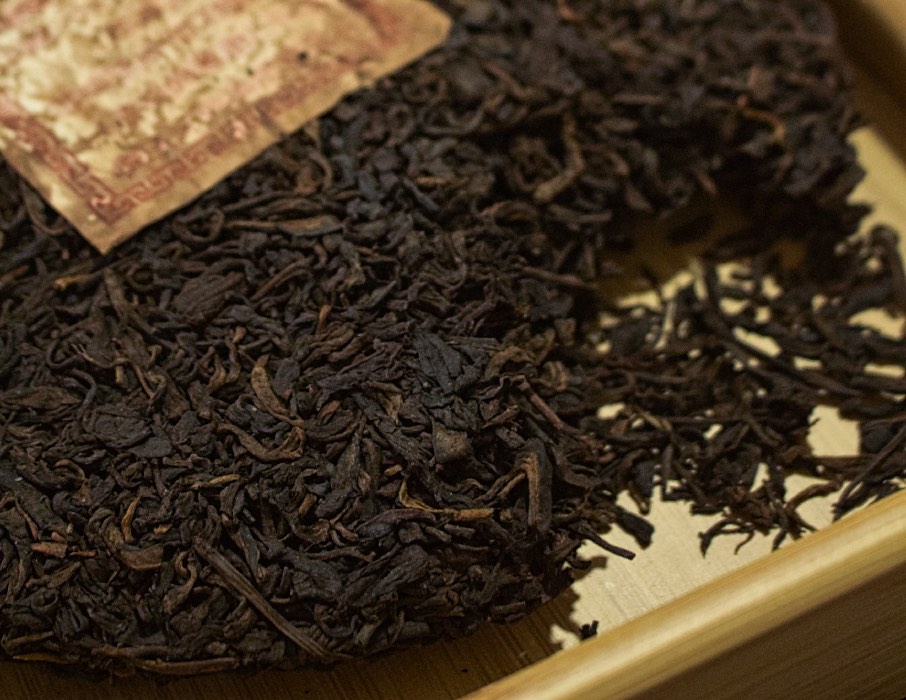2003 Hong Tai Chang Liu Bao Tea Cake
A cake of Liu Bao tea from the oldest Thai HTC pu-erh factory.
This old factory has never put a production (pressing or fermenting) year stamp on its cakes. However, by my parallel tasting, the year 2003 declared by the seller is quite believable. This Lui Bao is clearly older than its brother from 2008.
The infusion is a bit lighter, the taste is softer, smoother.
This is a serious, collectible tea in all respects. I'm already tired of writing about honest material from old Thai trees, so straight to organoleptics.
The aroma is complex, classic: betel, chocolate, wood, earthiness. On the palate, earthy notes are intertwined with bitter chocolate, tree bark and camphor; although there is not much of the latter here. With a detailed, careful examination, you can catch pleasant melodies of dried cherries and dates.
The aftertaste is tannic, woody. It brings to mind the astringency of red tea, as the "old school" fermented the material not deep, for aging.
The tea is smooth on the throat, boldly holds multiple infusions, as our customers have already gotten used to it.
What is remarkable here is the tea effect. The tea is tenacious, powerful, caffeinated. You don’t need to take a lot of it for a session, it will be difficult to finish.
And I wouldn't put it second or third in a multi-tea program. It deserves a lot of space and full concentration - devote an entire tea session to it.


Reviews (3)
Liu Bao that breathes library air, wood, camphor, nuts, and chocolate.
It silences. A classic. Old school.
Aroma
The dry leaves release a sweet, rich scent of noble woods — sandalwood or mahogany — woven with warm notes of incense. Hints of nuts and milk chocolate emerge. Once warmed in a gaiwan, the bouquet expands with camphor, dark chocolate, and the scent of an old library: aged books, antique furniture, apothecary drawers. In the cup, the aroma turns soft and sweet, with camphor, chocolate, and a subtle medicinal touch.
Taste
Thick, rich, and distinctly sweet. Nutty, with dark chocolate and camphor. The liquor has a dense, rounded body. The flavor is well-structured and dynamic, steadily moving toward woody tones. Arguably the most viscous, full-bodied, and oily Liu Bao in our collection.
Aftertaste
Long-lasting and syrupy, with a lingering sense of tea oils. Camphor and dark chocolate coat the entire mouth. With a deep breath, it feels as if you’re inhaling a thick tea vapor — it’s that intense and bodily.
Brewing recommendations
Use hot water (98–99°C) and strictly a teapot made of porous clay.
Ratio: 4.5–5 g per 100 ml.
First infusion: 20 seconds. Then 15 seconds, gradually increasing up to 3 minutes.
Effect
Strong, focused, meditative. Induces a state of deep engagement and bodily presence.
Not recommended as part of a multi-tea session — this tea demands full attention and its own space.
The previous reviewer called this "a classic of a classic" and I completely agree!
It has all the elements of aroma and flavor of a good liu bao from the famous "3 cranes" brand of Anxi,
but in a strong, yet refined way, plus additional ones.
The aroma is light camphor and very light coco, wood, earth and strong betel nut, as in the product description.
The flavor is nutty and a little earthy, but also, an almost whisky like flavor, as well as the astringency in the aftertaste. Not bland or overly earthy
despite it's age, and the humidity of Thai storage.
Thick mouthfeel and aftertaste, as one should expect from a high quality dark tea.
A fantastic tea, and I very much recommend it!
A classic of the classic. Classy Liu Bao. It is a pleasure to drink it. Viva Hong Tai Chang. Viva Tea Side!












